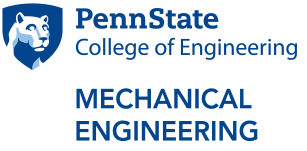Mechanical engineering professor to advance additive manufacturing materials research
January 15, 2019
UNIVERSITY PARK, Pa. – Amrita Basak, a new assistant professor, has joined the Penn State Department of Mechanical Engineering in the spring of 2019.
A uniquely trained engineer, with degrees in chemical, aerospace, materials science, and mechanical engineering and significant industry experience, Basak said, “I always knew I wanted to develop state-of-the-art technologies, but I never really limited myself to what kind of technology it would be.”
As a result, her experience so far has encompassed gas turbines, semiconductors, and now additive manufacturing. Now joining one of the world’s leading institutions in additive manufacturing, Basak is excited to push the needle even further.
“I didn’t want to go somewhere where I would be working all by myself,” she explained. “Here, I have colleagues that are renowned experts in materials science, additive manufacturing, controls, and computational sciences. I want to learn from them and use their strength to strengthen myself.”
The field of additive manufacturing (AM) has fascinated Basak for its unlimited potential applications. “It can be used in medical, aerospace, mechanical, and chemical industries,” she said. “I feel like a kid in the candy shop, you can explore so many different areas!”
Building on the current AM research initiatives being spearheaded at Penn State, Basak is turning her attention to the materials themselves. “Currently, all the materials we use for additive manufacturing were designed assuming the manufacturing method is going be a traditional one, such as investment casting,” Basak explained. “Therefore, the materials are not optimized for additive manufacturing.”
As a result, she plans to explore high-performance structural materials, such as nickel-based superalloys, to improve their performance and use specifically for AM.
Basak also brings a wealth of industry experience to the department, working for General Electric Aviation and Intel after earning her masters and doctorate from the Indian Institute of Technology, Kanpur and the George W. Woodruff School of Mechanical Engineering at Georgia Tech, respectively.
“While working in an industry can give you a different perspective, I don’t see academia as very different,” she explained. “No matter where you are, you need to constantly learn, be ethical, and take care of people.”
She added, “The kinds of problems the Department of Mechanical Engineering is solving – they may be academic problems, but they’re distilled from real world issues,” she said. “Ultimately, we’re trying to solve the problems that industries are facing every day.”
MEDIA CONTACT:
Erin Cassidy Hendrick, emc5045@psu.edu



